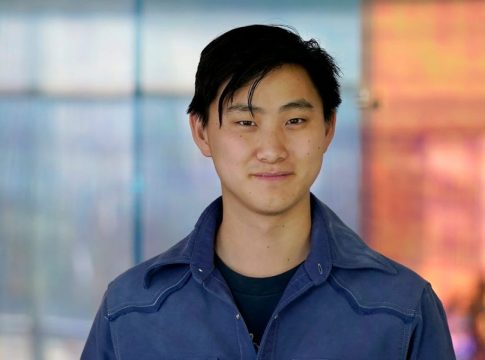The Future of Parenting and Tech: Alexandr Wang’s Vision on Neuralink and Child Development
As artificial intelligence continues to evolve, its implications for the next generation are becoming a point of focus for industry leaders. One such leader, Alexandr Wang, the innovative founder of Scale AI, recently shared his thoughts on child-rearing in a tech-driven world. Currently poised to lead superintelligence initiatives at Meta, Wang expresses a keen interest in how brain-computer interfaces—like those being developed by Neuralink—could shape the future of parenting, and he’s made a bold decision: he’s delaying having children until these technologies are more established.
The Promise of Brain-Computer Interfaces
Neuralink, co-founded by Elon Musk, is working on groundbreaking technology designed to be embedded into the human brain. These tiny microchips aim to do more than just record brain activity—they can also stimulate it. While these devices are still undergoing clinical trials, early reports have shown promising outcomes. Patients like Brad Smith, who suffers from ALS, have achieved remarkable feats, such as video editing, using their Neuralink chip.
However, Neuralink is not the only player in this field. Companies like Synchron—backed by tech titans like Bill Gates and Jeff Bezos—are working on similar initiatives, focusing on helping individuals with disabilities interface more effectively with technology. Another contender, Motif Neurotech, is developing neurostimulators akin to pacemakers but for the brain, targeting conditions such as severe depression.
Neuroplasticity and Learning Potential
Wang emphasizes the notion of neuroplasticity, the brain’s ability to adapt and reorganize itself. This ability is particularly pronounced in childhood, making those formative years a prime time for learning. He argues that the early adoption of brain-computer interfaces could endow children with capabilities that far exceed current adult abilities. By integrating these technologies during their most adaptable years, children might learn and interact with the world in radically transformative ways.
What This Means for the Future
As society moves closer to a future where brain-computer interfaces become commonplace, several questions arise:
- How will these technologies influence education? The potential for enhanced learning could redefine traditional educational approaches.
- Will there be ethical concerns regarding accessibility? Ensuring equitable access to such transformative tools will be vital to prevent socioeconomic divides.
- What are the implications for child development? The capacity for enhanced cognitive abilities raises questions about fundamental aspects of childhood and what it means to grow up in an increasingly tech-saturated environment.
As Wang waits for these innovations to advance, his reflections offer a glimpse into a future where parenting may intertwine seamlessly with the latest technological advancements. The dialogue around AI, brain-computer interfaces, and child development is just beginning, but one thing is clear: the landscape of the future is set to be as innovative as the technologies that will shape it.
In summary, as we explore the potential fusion of AI and neurotechnology, the implications stretch far beyond the individual, tapping into the very fabric of society and humanity.

Writes about personal finance, side hustles, gadgets, and tech innovation.
Bio: Priya specializes in making complex financial and tech topics easy to digest, with experience in fintech and consumer reviews.

